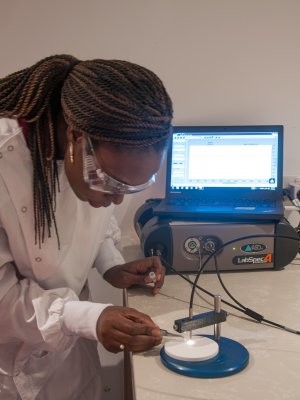Rapid, non-invasive Zika detection tool

Researchers from Australia, Brazil and the US have developed a fast and effective tool to detect Zika virus.
The findings by researchers from the University of Queensland, with colleagues from Brazil and the US, have been published in Science Advances.
The researchers claim that near-infrared spectroscopy (NIRS) is 18 times faster and 110 times cheaper than the current detection method.
Dr Maggy Sikulu-Lord from the Queensland Alliance for Agriculture and Food Innovation said, “We can quickly identify mosquitoes that are infected with Zika virus so public health authorities can treat affected areas before disease spreads to humans.
“It only involves shining a beam of light onto mosquitoes and using that information to determine if the mosquito is infected.”
Zika is a mosquito-borne virus that can cause abnormalities in unborn babies and is linked to the rare paralysing condition called Guillain-Barre Syndrome (GBS).
Dr Sikulu-Lord hopes the World Health Organisation will use NIRS in countries where Zika is endemic.
“We hope public health authorities can use it to predict future disease outbreaks and save lives by treating mosquito populations in time.”
She said the technology had potential to detect a number of diseases.
“We hope to have results for detecting dengue and malaria in mosquitoes in the next few months.
“We don’t think it will eradicate diseases but it will give us the ability to detect diseases quickly so that we can stop disease outbreaks.”
So far, NIRS technology has been shown to have a 94 to 99% accuracy rate in identifying infected mosquitoes under laboratory conditions in Brazil.
The team, which includes researchers Dr Rafael de Freitas and his team (Fiocrus, Rio de Janeiro), Dr John Beier (University of Miami) and Dr Floyd Dowell (USDA), is testing the accuracy of the technique under field conditions in Rio de Janeiro.
This work is supported by the Combating Zika and Future Threats Grand Challenge. Grand Challenges Canada’s Stars for Global Health, funded by the Government of Canada, provided funding for pilot data collection.
The work was supported by the United States Agency for International Development (USAID).
Colon cancer DNA in blood can guide chemo decisions
A simple blood test could change how doctors decide which patients with colon cancer need...
Non-invasive blood test helps rule out oesophageal cancer
Designed and developed in Australia, the PromarkerEso test is designed to offer a quick,...
Taste-based flu test enables rapid diagnosis
The diagnostic tool consists of the sensor molecule thymol and a virus-specific sugar building...





